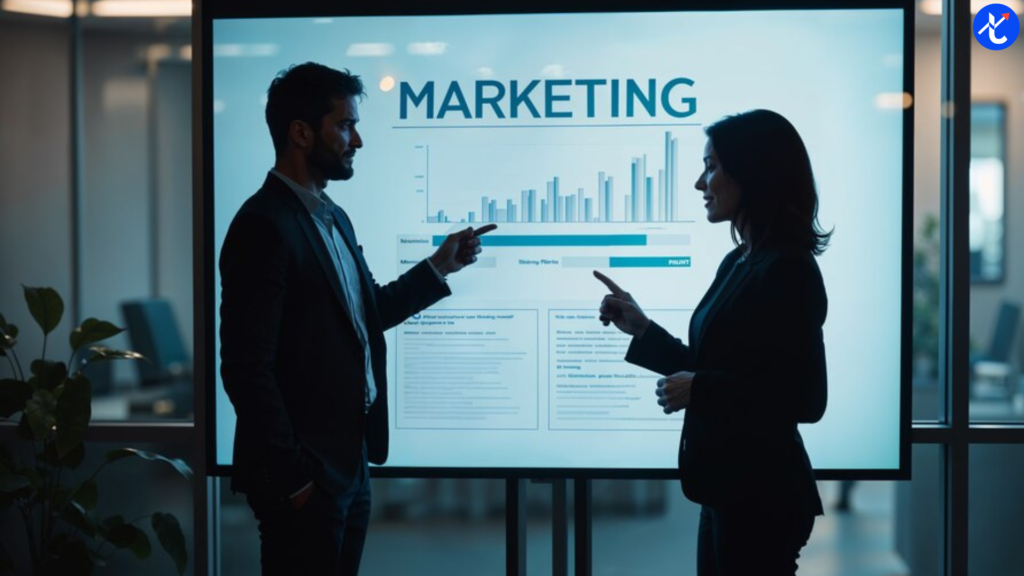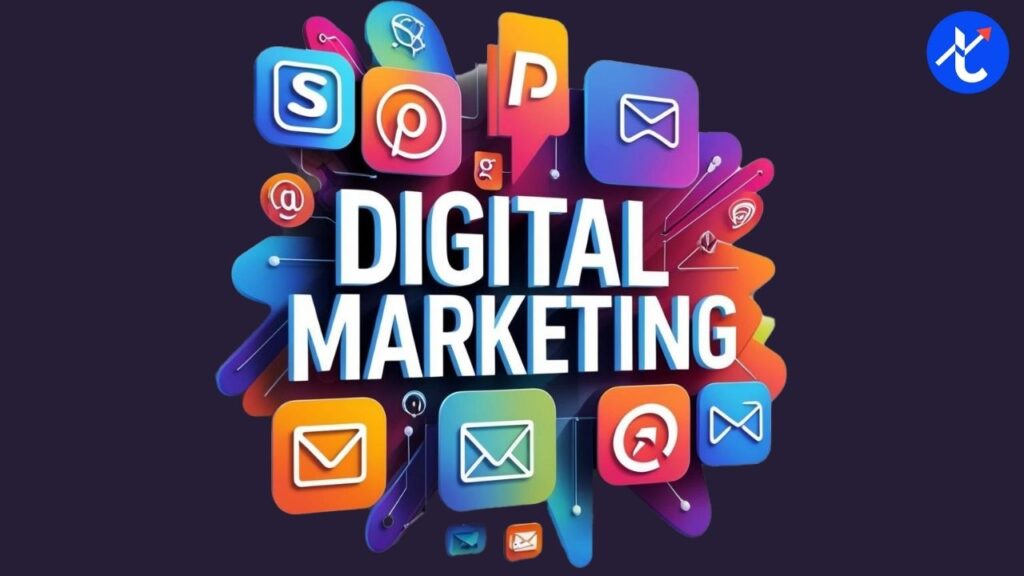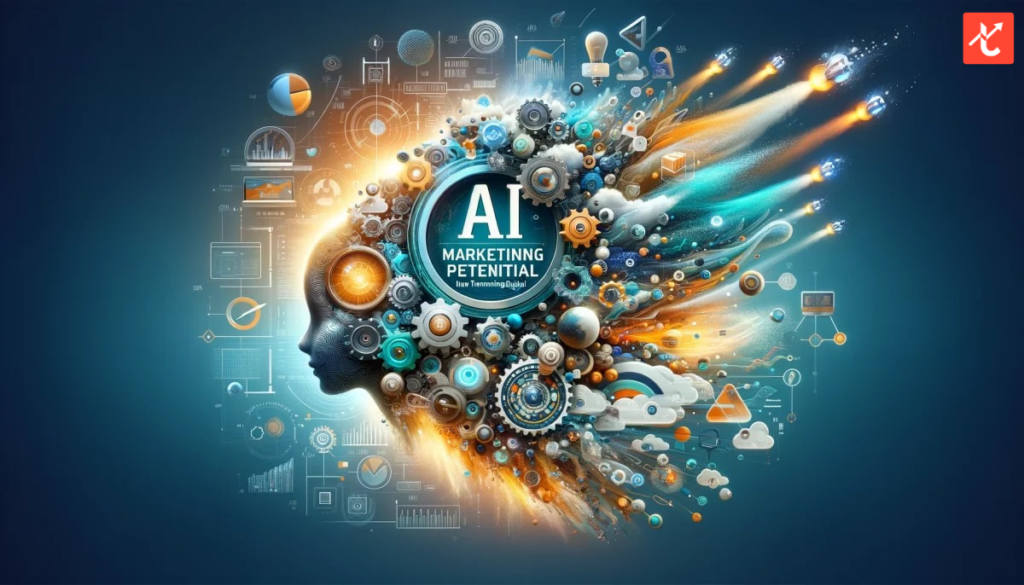The digital marketing landscape is evolving rapidly, with new technologies and consumer behaviors shaping the future. To stay ahead in 2025, businesses must embrace innovative strategies that enhance engagement, personalization, and automation. Here are the top 12 digital marketing trends for 2025 that will redefine how brands connect with their audiences.
1. AI-Driven Marketing & Automation
Artificial Intelligence (AI) is now at the core of digital marketing, enhancing everything from content creation to customer service. AI-powered tools can:
- Generate personalized recommendations for users based on their behavior.
- Automate responses via AI chatbots and virtual assistants.
- Optimize ad targeting, ensuring businesses reach the right audience at the right time.
- Streamline email marketing by predicting the best times to send emails and adjusting content dynamically.
AI isn’t just about automation—it’s about creating hyper-personalized experiences that improve engagement and conversions.
2. Voice Search & Conversational AI
Voice search is becoming more popular with the widespread adoption of smart assistants like Alexa, Google Assistant, and Siri. By 2025, nearly 50% of all online searches are expected to be voice-based.
To optimize for voice search:
- Focus on natural language processing (NLP) and long-tail keywords.
- Use FAQ-style content with direct, concise answers.
- Improve website loading speed and mobile-friendliness.
Voice-activated shopping and voice ads are also expected to rise, providing new opportunities for marketers.
3. Augmented Reality (AR) & Virtual Reality (VR) in Marketing
AR and VR are no longer just for gaming—they are now powerful tools in digital marketing. Brands are using these technologies to:
- Provide virtual try-ons for clothing, makeup, and accessories.
- Offer immersive product demos to boost buyer confidence.
- Create interactive ads that engage customers in new ways.
Retail giants like IKEA and Sephora have already embraced AR-powered shopping experiences, and more brands will follow in 2025.
4. Video Marketing & Short-Form Content
Video content continues to dominate, but short-form videos are the future. Platforms like TikTok, Instagram Reels, and YouTube Shorts are seeing explosive growth.
What works best in 2025?
- Authentic, unpolished videos that feel real and relatable.
- User-generated content (UGC) to build trust.
- Interactive live streams for real-time engagement.
- AI-generated video ads to increase personalization at scale.
Marketers must prioritize snackable, engaging, and mobile-optimized content to succeed.
5. Social Commerce & In-App Shopping
Social media is no longer just for branding—it’s now a full-fledged shopping platform. With platforms like Instagram, TikTok, and Pinterest integrating seamless shopping features, customers can discover and buy products without leaving the app.
In 2025, successful brands will:
- Invest in shoppable posts and live shopping events.
- Leverage influencer marketing to drive sales.
- Use AI-powered recommendations for personalized shopping experiences.
Social commerce is making online shopping faster, easier, and more engaging than ever before.
6. First-Party Data & Privacy-Focused Marketing
With the end of third-party cookies, brands must shift to first-party data collection. Customers now demand transparency and control over their data.
Key strategies for privacy-friendly marketing in 2025 include:
- Using zero-party data, where users willingly share their preferences.
- Creating interactive content like quizzes and polls to gather insights.
- Focusing on email and SMS marketing to maintain direct relationships.
Brands that prioritize trust, transparency, and compliance will have a competitive edge.
7. Influencer Marketing 2.0: Micro & Nano Influencers Rise
Influencer marketing isn’t just about celebrity endorsements anymore. In 2025, brands are shifting toward micro (10k–100k followers) and nano (1k–10k followers) influencers who have higher engagement rates.
Why?
- They are perceived as more authentic and relatable.
- They have stronger community connections with their audience.
- They drive higher ROI at a lower cost compared to mega-influencers.
Brands will focus on long-term influencer partnerships rather than one-off collaborations.
8. Hyper-Personalization with AI & Predictive Analytics
Generic marketing messages are outdated. AI-driven predictive analytics and hyper-personalization are taking center stage.
- AI can analyze customer behavior and predict future actions.
- Marketers can create real-time personalized recommendations.
- Emails, ads, and website content can adapt dynamically to each user.
The result? Higher engagement, conversions, and customer satisfaction.
9. Omnichannel Marketing for Seamless User Experience
Consumers now interact with brands across multiple platforms—social media, websites, mobile apps, and in-store. Omnichannel marketing ensures a consistent experience across all touchpoints.
- A user who browses a product on Instagram can receive personalized follow-up emails.
- Brands can use AI-driven retargeting to show relevant ads across devices.
- Customer service can be unified across chatbots, email, and phone support.
A seamless omnichannel experience will be essential for customer retention and brand loyalty.
10. Interactive Content & Gamification
People don’t just want to consume content—they want to engage with it. In 2025, brands will focus on:
- Polls, quizzes, and surveys to encourage participation.
- Gamified rewards programs to boost customer loyalty.
- Augmented reality filters for interactive social media campaigns.
Interactive content increases engagement rates, dwell time, and conversions—a win-win for both brands and consumers.
11. AI-Powered Search & Generative Engine Optimization (GEO)
With the rise of AI-driven search engines (like ChatGPT-powered Bing and Google’s SGE), traditional SEO is evolving into Generative Engine Optimization (GEO).
New strategies include:
- Writing AI-friendly content that provides direct, structured answers.
- Optimizing for conversational and context-based queries.
- Creating rich, well-cited content that AI models prioritize in responses.
SEO is no longer just about keywords—it’s about delivering meaningful, AI-friendly content.
12. Ethical & Sustainable Marketing
Consumers are choosing brands that align with their values. Sustainable and ethical marketing will be a major focus in 2025.
- Brands will highlight eco-friendly practices in their campaigns.
- Companies will prioritize social responsibility and inclusivity.
- Marketing messages will focus on purpose-driven storytelling.
Brands that genuinely support sustainability will build stronger, long-term relationships with customers.
Final Thoughts
The digital marketing landscape is evolving at an unprecedented pace, and 2025 will be a year of transformation. As consumer behavior shifts and technology advances, businesses must adapt, innovate, and embrace new trends to stay ahead of the competition.
Key Takeaways for Marketers in 2025
- AI and Automation Will Dominate – From AI-driven content creation to predictive analytics, automation will make marketing smarter and more efficient. Businesses that fail to adopt AI-powered tools may struggle to keep up.
- Personalization is No Longer Optional – Customers now expect brands to know their preferences and deliver tailored experiences. Whether through dynamic email marketing, AI-driven recommendations, or personalized ads, hyper-personalization will be key to engagement.
- Short-Form, Interactive Content Wins – The rise of short-form videos, AR experiences, and gamified marketing means brands need to prioritize engaging, snackable content that keeps audiences hooked.
- SEO is Changing with AI-Powered Search – Traditional SEO tactics will no longer be enough. Instead, Generative Engine Optimization (GEO) and AI-friendly content strategies will shape search visibility.
- Social Commerce & Influencers Are Redefining Sales – Social media platforms are turning into shopping hubs, and micro-influencers are now more powerful than celebrities in driving sales and brand trust.
- Ethical & Sustainable Marketing Will Build Brand Loyalty – Consumers are more conscious of brand values than ever before. Companies that emphasize sustainability, social responsibility, and transparency will foster deeper connections with their audience.





